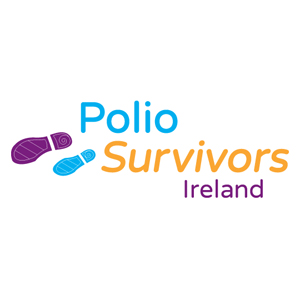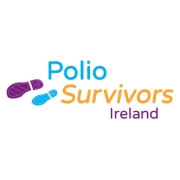Polio survivors fear for their future as they experience extreme difficulty in accessing information about their social welfare entitlements – Polio Survivors Ireland

- Polio Survivors Ireland says members rely heavily on the organisation for information and advice about their social welfare entitlements
- 64% say access to mobility aids and appliances such as motorised scooters, wheelchairs, stairlifts and crutches are essential if they are to live an independent life and avoid isolation and loneliness
- Polio Survivors Ireland marks 30 year anniversary with national conference in Carlow
Polio survivors say they are finding it extremely difficult to obtain information about their social welfare entitlements and would welcome more assistance in this regard, according to Polio Survivors Ireland as the representative organisation marks its 30th anniversary.
Polio survivors are reporting that it is becoming increasingly challenging for them to access social welfare services and information online and that the inability to talk to a human being on the telephone about their entitlements is making the situation even more difficult. As a result, Polio Survivors Ireland is now working regularly with its 1,000+ members to offer information, support and advice to those struggling to find information about their social welfare benefits.
The organisation also says that 64% of polio survivors cite access to mobility aids and appliances such as mobility scooters, wheelchairs, rise and recliner chairs, stairlifts, crutches, callipers and customised shoes as their greatest need.
However, as 96% of polio survivors rely entirely on social welfare for their whole income, the majority do not have the means to afford the mobility aids and appliances which are vital to help prevent falls in the home and allow polio survivors to live independently.
As a result, Polio Survivors Ireland spends approximately €79,000 in funding each year supplying a range of mobility aids and appliances to members, enabling polio survivors to maintain their dignity and live independently.
The research also reveals that 52% of polio survivors are extremely concerned they will be unable to continue driving in the future, leading to feelings of isolation and loneliness as they may not be able to leave their home.
Commenting on the new research, Fran Brennan, CEO of Polio Survivors Ireland, says:
“Many polio survivors now live with the late effects of the disease called Post Polio Syndrome, a condition which causes a range of health issues later in life such as severe muscle and joint pain which can impact movement. This is why 65% of our members say mobility is the biggest barrier they are currently facing in their day-to-day life and why 64% also say that access to mobility aids and appliances is crucial to them. At Polio Survivors Ireland, we regularly see an increase in falls and injuries among members who do not have access to suitable mobility aids.”
“Transportation is vital for polio survivors as they need to attend regular essential medical appointments in hospitals around the country. Many rely on driving due to a lack of public transport in their locality and accessibility issues. This is why so many of them are concerned that if they can’t drive, it will lead to increased isolation.”
“We work to offer as much information and advice as we can to our members, but even more importantly, we also offer a listening ear and emotional support to polio survivors who may be experiencing feelings of isolation or loneliness.”
The new research will be highlighted at Polio Survivor Ireland’s conference on 22nd June in Carlow as the charity celebrates their 30th anniversary. Polio survivor Anne Shanahan, will be presenting the Polio Hero Award in honour of Jim Costello. Jim, who sadly passed away in 2022, was the last of the charity’s founding members. Professor Frans Nollet, Chair of the Department of Rehabilitation Medicine and Head of Post-Polio Expert Centre, Amsterdam UMC, will also be speaking about his research of post polio syndrome and its effects on survivors. John Dolan, CEO of the Disability Federation of Ireland (DFI), a polio survivor himself, will reflect on the organisation’s anniversary.
Polio Survivors Ireland was established 30 years ago and is the only organisation in Ireland providing practical services and support to those unfortunate enough to have contracted polio as babies or young children. They provide a range of services including mobility aids and appliances, physiotherapy, occupational therapy and respite, and raise awareness of the issues faced by polio survivors. They also work to educate medical professionals, social care providers and health policy makers about the reality for all those still impacted by polio.
Polio Survivors Ireland has a network of support groups around the country and they also provide a telephone support service for those who can’t leave their home. As well as providing stair lifts, callipers, bespoke footwear mobility scooters and wheelchairs, the organisation also helps survivors to access a range of supports. For those who are isolated, a listening ear is often the most important lifeline the organisation provides.
Keep up to date with Polio Survivors Ireland on
Facebook @PolioSurvivorsIreland and on Twitter @PolioIreland



